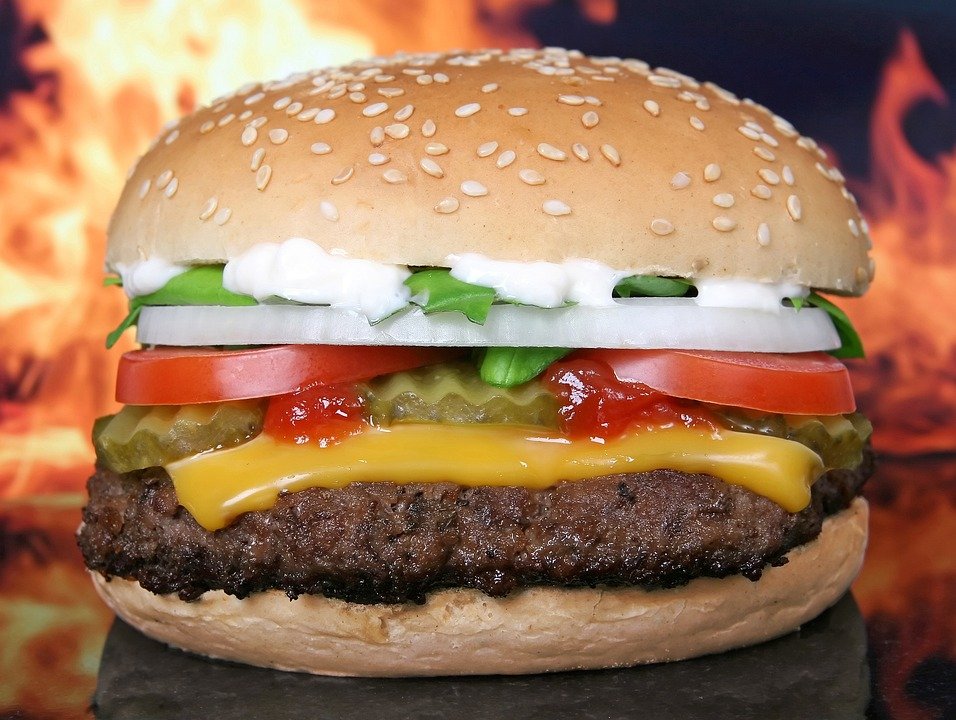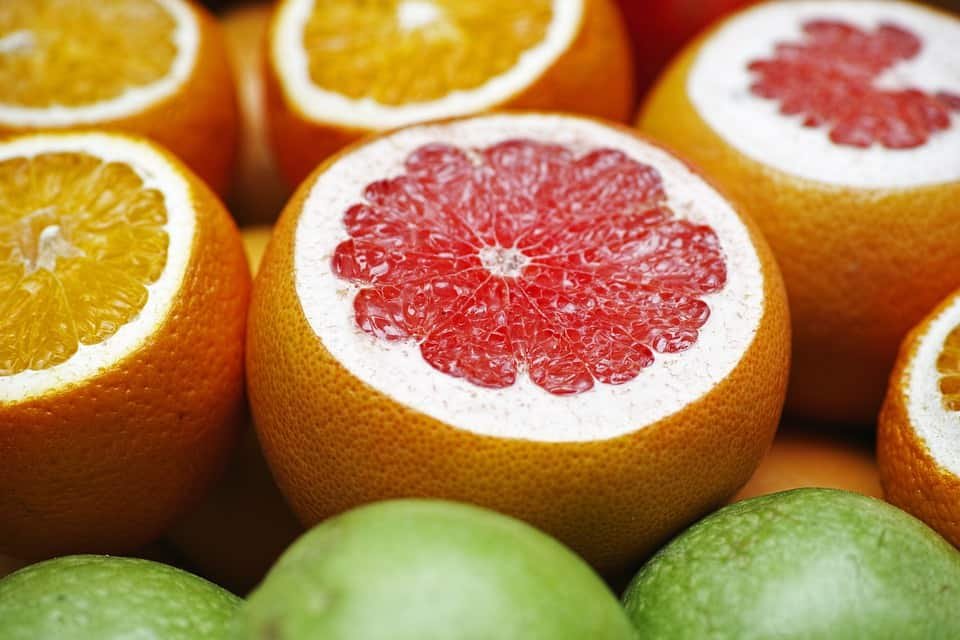The Foods to Avoid After gastric Sleeve surgery
gastric sleeve surgery, also known as sleeve gastrectomy, is a popular weight loss procedure that involves removing a portion of the stomach to create a smaller, sleeve-shaped stomach. This reduces the amount of food that can be consumed, helping individuals lose weight and improve their overall health. However, it is crucial to make significant dietary changes after the surgery to ensure the best outcomes and avoid complications. In this article, we will discuss the foods to avoid after gastric sleeve surgery and why they should be eliminated from your diet.
1. Carbonated Beverages
Carbonated beverages, such as soda and sparkling water, should be strictly avoided after gastric sleeve surgery. These drinks contain high amounts of carbon dioxide, which can cause bloating, discomfort, and even pain in the newly formed stomach pouch. Additionally, carbonated beverages are often high in sugar or artificial sweeteners, which can hinder weight loss and lead to cravings for more unhealthy foods. It is essential to prioritize hydrating with water and consuming other healthier alternatives like herbal tea or infused water instead.
2. High-Calorie and Sugary Foods
High-calorie and sugary foods, including candies, pastries, desserts, and sugary drinks, should be eliminated from your diet after gastric sleeve surgery. These foods not only contribute to weight gain but can also cause dumping syndrome, a condition characterized by rapid gastric emptying and uncomfortable symptoms like nausea, vomiting, diarrhea, and dizziness. Consuming these foods can also lead to insulin spikes, making it difficult to maintain stable blood sugar levels and achieve long-term weight loss success. Opt for healthier alternatives like fresh fruits or Greek yogurt to satisfy your sweet cravings.
3. Fried and Greasy Foods
Fried and greasy foods, such as deep-fried snacks, French fries, and fast food, should be avoided after gastric sleeve surgery. These foods are high in unhealthy fats and can be challenging to digest, leading to discomfort and potential complications. They can also contribute to weight gain and hinder your weight loss progress. Instead, focus on incorporating lean protein sources like grilled chicken or fish and steamed vegetables into your meals to ensure proper healing and support weight loss.
4. Tough and Fibrous Foods
Tough and fibrous foods, like tough cuts of meat, fibrous fruits and vegetables, and whole grains, should be limited or avoided after gastric sleeve surgery. These foods are difficult to chew and can cause blockages or delays in the digestive system, leading to discomfort and potential complications. It is important to prioritize softer, easily digestible foods like lean ground meats, cooked vegetables, and well-cooked grains in your diet to prevent any issues and ensure proper nutrient absorption.
5. Alcoholic Beverages
Alcoholic beverages should be avoided after gastric sleeve surgery. Alcohol has empty calories, provides no nutritional value, and can hinder weight loss efforts. Moreover, after the surgery, your body may be more sensitive to the effects of alcohol, leading to a higher risk of dependency and potential liver damage. It is crucial to prioritize your health and focus on consuming hydrating and nutritious beverages instead.
In conclusion, after gastric sleeve surgery, it is vital to make significant dietary changes to support weight loss and ensure optimal health. Avoiding carbonated beverages, high-calorie and sugary foods, fried and greasy foods, tough and fibrous foods, and alcoholic beverages is crucial to prevent complications, support proper healing, and achieve long-term weight loss success. Remember to consult with your healthcare professional or registered dietitian to create a personalized post-surgery diet plan that suits your specific needs and preferences. Stay committed to your dietary guidelines, and you will reap the benefits of your gastric sleeve surgery for years to come.
Common Inquiries Regarding Food To Avoid After gastric Sleeve
What are some foods to avoid after gastric sleeve surgery?
After undergoing gastric sleeve surgery, it is crucial to be mindful of your dietary choices. Certain foods can be problematic and should be avoided to ensure a smooth recovery and long-term success. Here are some foods you should avoid:
1. Carbonated beverages: Carbonated drinks like soda or sparkling water can lead to discomfort and bloating. The gas in these beverages can stretch your stomach, which is counterproductive to the purpose of the gastric sleeve surgery. It is best to opt for hydrating alternatives such as water or herbal tea.
Important information:
– Carbonated beverages can cause discomfort and bloating.
– The gas in these drinks can stretch your stomach.
– Hydrating alternatives like water or herbal tea are recommended.
2. Sugary foods and beverages: Foods that are high in sugar, such as candy, cakes, cookies, and sugary drinks, should be avoided after gastric sleeve surgery. These foods provide empty calories and can lead to weight gain or hinder weight loss progress. It is essential to prioritize nutrient-dense foods that support your body’s healing and nutritional needs.
Important information:
– Sugary foods and beverages provide empty calories.
– They can hinder weight loss progress.
– Opt for nutrient-dense foods instead.
3. Fatty and greasy foods: Foods that are high in fat and grease can be challenging for your stomach to digest after gastric sleeve surgery. These include fried foods, fast foods, fatty meats, and high-fat dairy products. Consuming these foods can cause discomfort, nausea, and potentially lead to dumping syndrome. It is advisable to choose lean protein sources, such as skinless poultry, fish, and tofu, and opt for cooking methods like grilling or baking instead of frying.
Important information:
– Fatty and greasy foods can cause discomfort and nausea.
– They can potentially lead to dumping syndrome.
– Choose lean protein sources and healthier cooking methods.
4. Tough and fibrous foods: Foods that are tough or fibrous can be challenging for your newly resized stomach to handle. This includes tough cuts of meat, raw vegetables, and certain fruits with skins or seeds. These foods can cause blockages or lead to feelings of fullness and discomfort. It is best to cook vegetables until they are soft and tender and opt for softer fruits without skins or seeds.
Important information:
– Tough and fibrous foods can cause blockages or discomfort.
– Cook vegetables until they are soft and tender.
– Choose softer fruits without skins or seeds.
5. Alcohol: Alcohol should be avoided after gastric sleeve surgery. It provides empty calories, has no nutritional value, and can be rapidly absorbed by the body, leading to increased intoxication. Moreover, alcohol can irritate the stomach lining and potentially cause ulcers. It is important to prioritize healthier beverage choices and consult with your healthcare provider regarding alcohol consumption.
Important information:
– Alcohol provides empty calories and no nutritional value.
– It can be rapidly absorbed by the body, leading to increased intoxication.
– Alcohol can irritate the stomach lining and potentially cause ulcers.
By avoiding these foods, you can ensure a smoother recovery process and maximize the benefits of gastric sleeve surgery. Remember to consult with your healthcare provider or a registered dietitian for personalized dietary advice tailored to your specific needs.
Common Misconceptions about Food to Avoid After gastric Sleeve
When it comes to maintaining a healthy lifestyle after undergoing a gastric sleeve surgery, it is essential to be aware of the dietary changes that need to be made. The gastric sleeve procedure involves the removal of a large portion of the stomach, resulting in a reduced stomach capacity and altered digestion. With these changes, certain foods may not be well-tolerated or can hinder weight loss progress. However, there are several misconceptions surrounding the types of food that should be avoided after gastric sleeve surgery. In this article, we will explore and debunk some of these common misconceptions to provide you with accurate information for your post-surgical diet.
1. All fruits and vegetables are safe to consume
One common misconception is that all fruits and vegetables are safe to consume after gastric sleeve surgery. While it is true that fruits and vegetables are generally considered healthy choices, not all of them are suitable for individuals who have undergone this procedure. Some fruits and vegetables can be high in fiber or have a tough texture that may cause discomfort or irritation in the digestive system. It is important to choose fruits and vegetables that are easily digestible and low in fiber. Examples of suitable options include cooked carrots, spinach, and canned fruits packed in water.
2. Consuming high-protein foods is always beneficial
Another misconception is that consuming high-protein foods is always beneficial for individuals who have had gastric sleeve surgery. While protein is an essential nutrient that aids in healing and promotes satiety, consuming excessive amounts can be counterproductive. After the surgery, the stomach’s capacity is significantly reduced, and consuming large quantities of protein can lead to discomfort, nausea, and vomiting. It is crucial to follow the recommended guidelines provided by your healthcare provider regarding protein intake to ensure optimal healing and weight loss.
3. All types of fats should be avoided
Some individuals may believe that all types of fats should be avoided after gastric sleeve surgery. However, this is not entirely accurate. While it is true that certain types of fats, such as saturated and trans fats, should be limited to maintain overall health, healthy fats are an essential part of a balanced diet. Healthy fats, such as those found in avocados, nuts, and olive oil, provide essential nutrients and help promote satiety. Including small portions of healthy fats in your diet can help you feel satisfied and support your body’s needs.
4. Sugar-free and diet foods are always a healthy choice
Many people believe that sugar-free and diet foods are always a healthy choice for individuals who have undergone gastric sleeve surgery. While these foods may be lower in calories or sugar, they are not necessarily the best option for a post-surgical diet. Sugar-free and diet foods often contain artificial sweeteners, which can cause digestive issues and may not be well-tolerated by some individuals. Additionally, these foods may be highly processed and lack essential nutrients. It is important to focus on whole, nutrient-dense foods rather than relying solely on sugar-free or diet alternatives.
5. Drinking fluids with meals does not affect weight loss
A common misconception is that drinking fluids with meals does not affect weight loss after gastric sleeve surgery. However, consuming fluids while eating can have a significant impact on the digestion and absorption of nutrients. When you drink fluids with your meals, it can lead to a quicker passage of food from the stomach to the intestines, resulting in reduced nutrient absorption. It is recommended to wait at least 30 minutes after a meal before consuming any liquids to ensure optimal digestion and nutrient absorption. It is also essential to prioritize hydrating between meals to prevent dehydration.
In conclusion, there are several common misconceptions about the types of food to avoid after gastric sleeve surgery. It is crucial to obtain accurate information regarding your post-surgical diet in order to support your weight loss journey and promote overall health. By debunking these misconceptions and following the advice of your healthcare provider, you can make informed decisions about your dietary choices and achieve long-term success after gastric sleeve surgery.
Food To Avoid After gastric Sleeve
#Food #Avoid #gastric #Sleeve

Dr. Bridget Alex
Born on a windy autumn morning in Portland, Maine, Dr. Bridget Alex always had an innate calling to heal and guide. From mending the wings of injured sparrows as a child to dedicating her life to transforming thousands of lives through bariatric surgery, her journey has been nothing short of inspiring.
After graduating with top honors from Harvard Medical School, where she was known not just for her surgical precision but also for her empathetic approach to patient care, Dr. Alex rapidly became one of the most sought-after bariatric surgeons in the nation.
Recognizing the need for comprehensive patient support beyond surgery, she penned three groundbreaking books on bariatric surgeries. These texts, now considered seminal works in the field, are often cited for their innovative insights and deep understanding of the emotional and psychological aspects of weight loss surgery.
Dr. Alex’s commitment to her patients goes beyond the operating room and the written word. She was acutely aware of the nutritional challenges faced by those who underwent bariatric surgery, which led her to develop the award-winning Bari Liquid Force Vitamin. In collaboration with Universal Body Labs, this tailor-made bariatric vitamin ensures that individuals receive optimal nutrition during their post-operative journey.
Beyond her professional commitments, Dr. Alex is a passionate advocate for mental health, underscoring the deep-seated relationship between physical and mental well-being. Her non-profit organization, ‘Whole You Foundation’, has helped thousands bridge the gap between physical transformation and mental liberation.
When she’s not in the operating room, writing, or developing health innovations, Dr. Alex enjoys hiking with her Golden Retriever, Leo, indulging her love for jazz piano, and volunteering at local schools to educate youngsters about the importance of a balanced life.
Throughout her illustrious career, Dr. Bridget Alex has transformed the narrative around bariatric surgery and its aftercare. Through her relentless dedication, she has not only changed bodies but also touched souls, leaving an indelible mark on the medical world.

